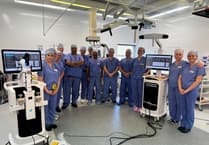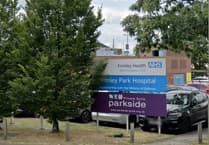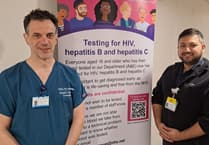Parents are seeking advice on common respiratory viruses following an increase in children attending hospital emergency departments this winter, according to Frimley Park Hospital.
Rises in respiratory syncytial virus (RSV) and parainfluenza cases locally have prompted leading paediatric clinicians to issue advice on what to do. Visits to the NHS Frimley Healthier Together children’s health website have also increased.
By being aware of what symptoms to look for in your child, you can successfully treat them at home, without the need to take them to a busy emergency department or GP surgery, say doctors.
Paediatrician Dr Patrick Aldridge from Frimley Park Hospital said: “Increases in mild conditions such as diarrhoea and vomiting, wheeze, bronchiolitis, and croup are typically seen at this time of year, causing parents to worry about their children’s health.
“Typically, these viral illnesses clear up within seven days, without the need for medical support. For most children, keeping warm, plus treatment with paracetamol and/or ibuprofen, with sugary fluids when they’re not eating, are usually enough to help.”
Commonly seen as the weather turns colder, the rise in respiratory syncytial virus (RSV) and parainfluenza across local communities has led to a demand for information.
Parents and carers are turning to NHS healthcare advice, particularly the Frimley Healthier Together website and app.
Dr Alexandra Streeter de Diego, GP, paediatric doctor and clinical lead for Frimley Healthier Together, said: “Having an unwell child can be worrying for parents, so providing reassurance that their child isn’t developing serious complications from a virus, or hasn’t got an infection needing treatment, is important.
“Parents who are concerned should visit the Frimley Healthier Together website or app. There they can access expert NHS advice and support to help them manage a range of common childhood illnesses themselves and importantly, recognise when they need to call their GP, 111 or visit the emergency department.
“There is clear information for each symptom in a traffic system, red for the emergency department, amber for GP and green for self-care. This gives parents and carers the reassurance of knowing they can provide appropriate care at home, and highlights when they may need more specialist help.”





Comments
This article has no comments yet. Be the first to leave a comment.